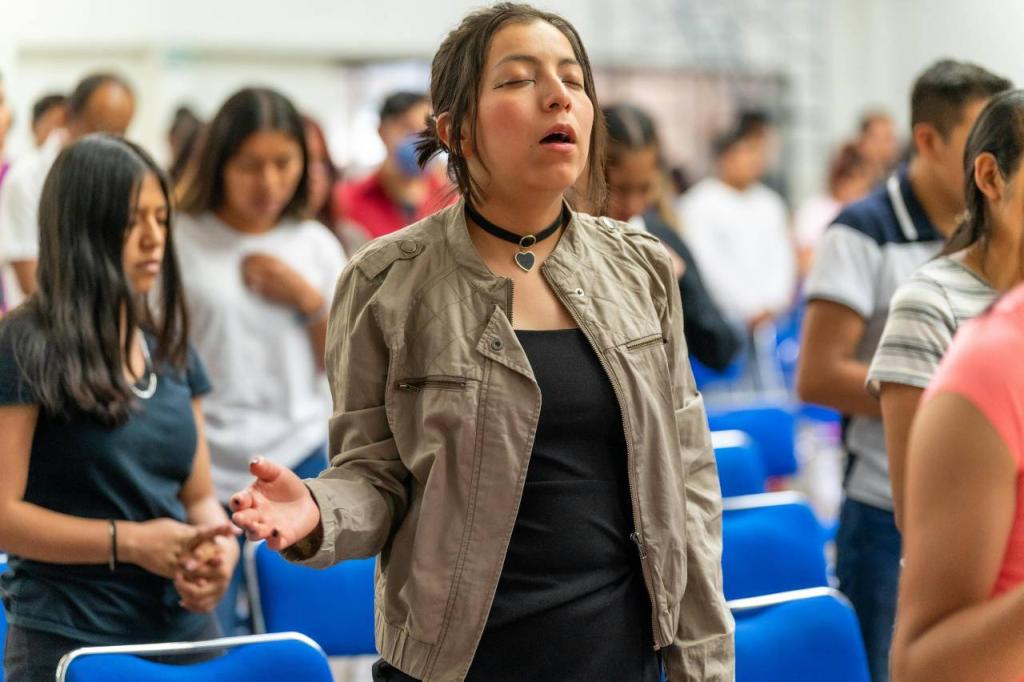
A recent study from the Pew Research Center finds that around the world, many people are leaving their childhood religions.
As the study shows, “a fifth or more of all adults have left the religious group in which they were raised,” with Christianity and Buddhism experiencing the largest losses overall. While this is sometimes due to “religious switching,” a number of the adults surveyed identify with no religious affiliation whatsoever.
According to findings from The Deconstruction Network, approximately 6,000 people leave Christianity or cease to believe in God per day in America. It’s easy for churches, pastors, and religious folks, at least, to get tripped up by those numbers. Yet another study found that 27 percent of people who go through a process of deconstruction still identify as Christian and 12 percent identify their beliefs as “spiritual but not religious.”
For Phil Drysdale, creator of the Deconstruction Network, the answer is simple: “If deconstruction were a spiritual movement, it would be the fastest growing one in the world.” Most of the folks under Drysdale’s guidance come from evangelical denominations, or at least more so than from mainline, Catholic, or Orthodox traditions. Generally speaking, he notes that those who find themselves in a place of faith deconstruction tend to be, overwhelmingly, under the age of fifty.
As the original study shows, the phenomenon is not singular to Christianity alone. According to researchers, “Buddhism also is losing adherents through disaffiliation in some countries,” further citing how 23 percent of Japanese adults and 13 percent of South Koreans who were raised as Buddhists don’t identify as religious today.
“Even if there was a way out of suffering,” one writer at the Buddhist website Handful of Leaves writes, “I wasn’t convinced that the path consisted of endless chants and lengthy rituals that my 13-year-old self could scarcely understand.” A ten-year distancing from Buddhism as an agnostic became the solution to her teenage spiritual angst.
Because for many of the adults who were raised in religious environments, leaving faith altogether isn’t necessarily the solution. Instead, finding a religion that better suits their changing, evolving selves seems to do the trick.
As the Pew study shows, Christianity ironically has the “highest ratios of people leaving to people joining.” The study cites Germany as an example, where the “ratio among Christians is 19.7 to 1.0, meaning there are nearly 20 Germans who say they were raised as Christians in childhood but don’t consider themselves Christian today for every one German who has become a Christian after being raised in another world religion or in no religion.”
While the numbers can seem alarming at first glance, religions like Christianity continue to make gains for those who hop from one religion to the next.
For Phyllis Tickle, an American author and lecturer who focuses on issues of spirituality and religion, massive transitions tend to happen in the global church about every 500 years or so. In her 2008 book, The Great Emergence, Tickle compares the period that the Christian Church finds itself in now—which is called the Great Emergence—“to other ‘Greats’ in the history of Christianity, including the Great Transformation (when God walked among us), the time of Gregory the Great, the Great Schism, and the Great Reformation.”
Even if Tickle namely looks at the Christian religion, it’s hard not to believe the same might be true across the board for all religions today.
On the other side of the pandemic, as well as other causes of social upheaval and current events, much of the world is rewriting its relationship to the religion of its youth.
But this isn’t necessarily a bad thing. When this happens, to Tickle, “Christians from the four corners (or quadrants) of Western Christianity—conservatives, renewalists, liturgicals, and social justice Christians—are moving toward the center, grabbing bits and pieces from each tradition and putting them together to make something entirely new.”
Perhaps something new really is emerging, even for all those people who are leaving their childhood religions.
Read More: Around the World, Many People Are Leaving Their Childhood Religions

















